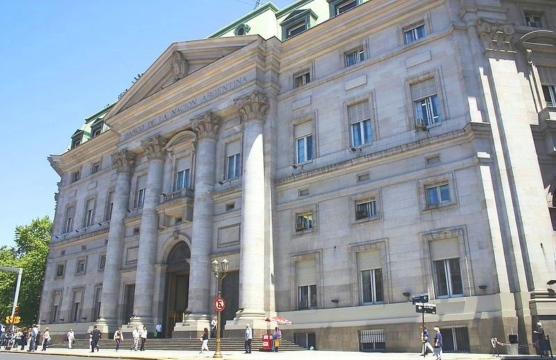In a new Dialogue publication on Chinese energy engagement with Latin America, Koch-Weser reviews the writings of energy experts at China’s top research institutions.
Koch-Weser finds that articles by Chinese scholars in English-language energy journals offer a wealth of technical analysis on China’s role in global oil markets, including:
- Modeling China’s strategic petroleum reserve scenarios (Bai Yang 2012, 2014; Fan Ying, Zhang, and Wei 2009, Fan Ying and Zhang 2010; and Wu Gang 2007, 2012);
- Studying how oil shocks impact China’s economy (Zhang Zhongxiang, Tang, and Wu 2010; Du Limin, He, and Wei 2010; Broadstock, Cao, and Zhang 2012);
- Suggesting ways to improve the efficiency of China’s equity oil investments overseas (Fan Ying and Zhu 2010, Chen Shaofeng 2011); and
- Studying China’s maritime shipping security (Zhang Zhongxiang 2011). China-based scholars have also looked closely at China’s domestic energy needs. Examples include:
- Projecting future domestic oil production (Hu Yan et al. 2011, Ma Linwei et al. 2012) and future supply and demand (Wang Yanjia, Gu, and Zhang 2011);
- Studying China’s nuclear development (Xu Yichong 2008, 2014; Zhou Yun 2011);
- Studying trends in coal, gas, and renewable energy (Lin Boqiang 2010a, 2010b, 2012a, 2012b; Wang Jianliang 2013 and Li Junchen et al. 2011).
Energy analysis specific to Latin America can be found in Chinese-language journals as well. The Journal of Latin American Studies and International Forum convene area studies experts, while China’s Ministry of Land and Resources publishes energy-related journals that feature articles on Latin America.4 The authors featured here fall into two broad groups: Latin America experts, primarily from the Institute of Latin America Studies at the Chinese Academy of Social Sciences (CASS); and energy experts, primarily at the China University of Geosciences and the Center for Oil and Gas Resource Strategic Research at the Ministry of Land and Resources. Chinese-language articles are qualitatively different from what Chinese scholars publish in English-language journals. They tend to be shorter on empirics and literature reviews, instead prioritizing recommendations for decision makers in government and industry. While less useful to Western academic discourse, these articles provide some insight into Chinese policy thinking.
Among China’s top energy experts are the following:
General Energy Policy
- Bai Yang: Nanjing Normal University School of Business; Nanjing Aeronautics and Astronautics College of Economics and Management
- Chen Shaofeng: Peking University–School of International Studies
- Fan Ying: Chinese Academy of Sciences (CAS)—Institute of Policy and Management (IPM), Center for Energy and Environmental Policy Research
- Feng Lianyong: China University of Petroleum School of Business and Administration
- Lin Boqiang: Xiamen University—China Center for Energy Economics Research (CCEER), Economics School; Minjiang University—New Huadu Business School
- Wang Jianliang: University of International Business and Economics Department of Economics
- Wu Gang: Chinese Academy of Sciences (CAS) Institute of Policy and Management (IPM), Center for Energy and Environmental Policy Research; Beijing Institute of Technology—Center for Energy and Environmental Policy Research
- Zhang Zhongxiang: Fudan University—Center for Energy Economics and Strategy Studies; Chinese Academy of Sciences (CAS) Institute of Policy and Management (IPM)
Energy in Latin America
- Wu Guoping: Chinese Academic of Social Sciences (CASS)—Director of Latin American Economic Research Institute
- Sun Hongbo: Chinese Academic of Social Sciences (CASS)—Senior Research Fellow at Institute of Latin American Studies
- Wang Yue: China University of Geosciences—Professor; Ministry of Land and Resources Center for Oil and Gas Resource Strategic Research—Researcher
- Pan Xiping: China University of Geosciences—Professor
- Li Xue: Chinese Academic of Social Sciences (CASS)—Researcher at Institute of World Economics and Politics

